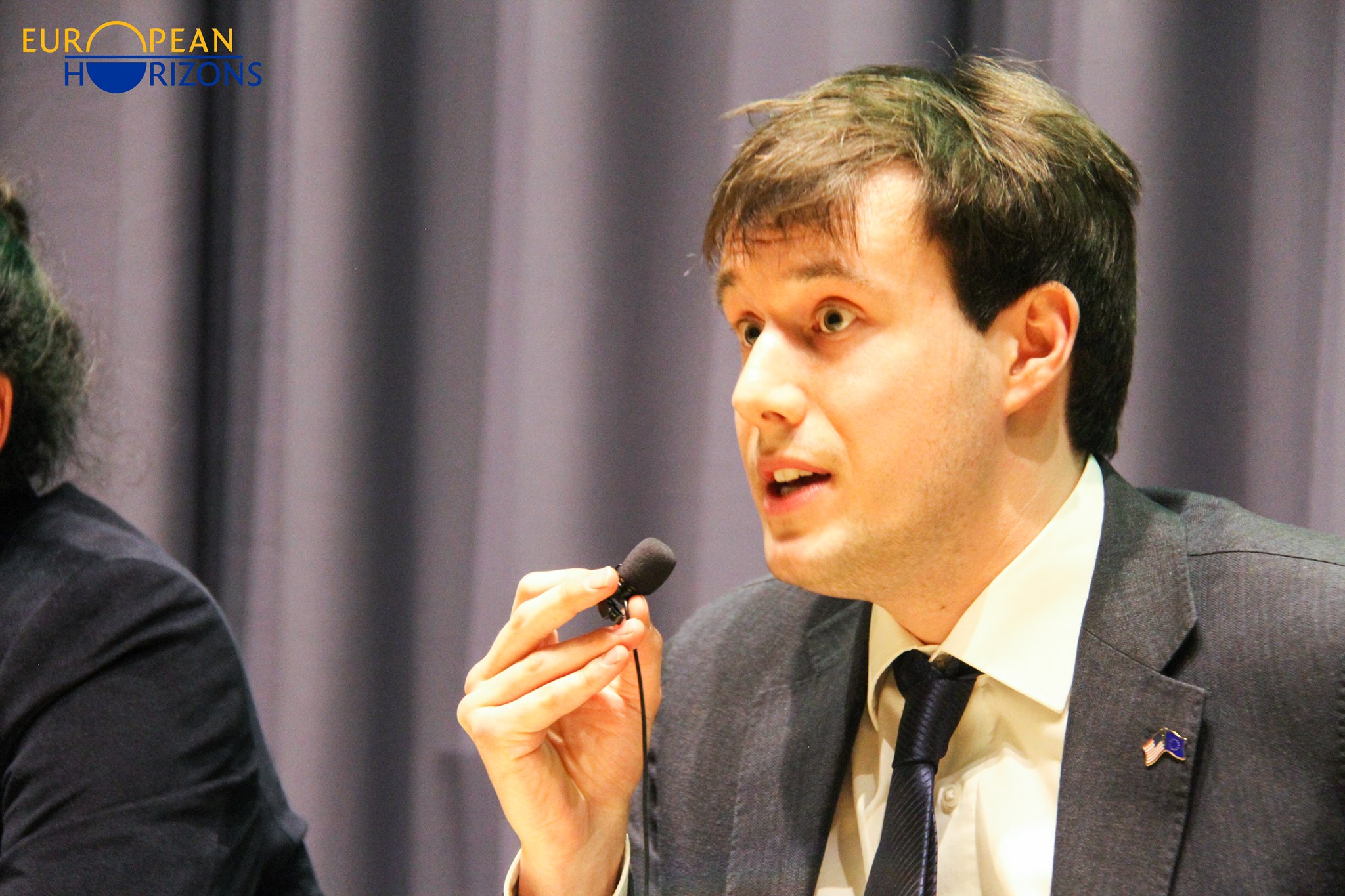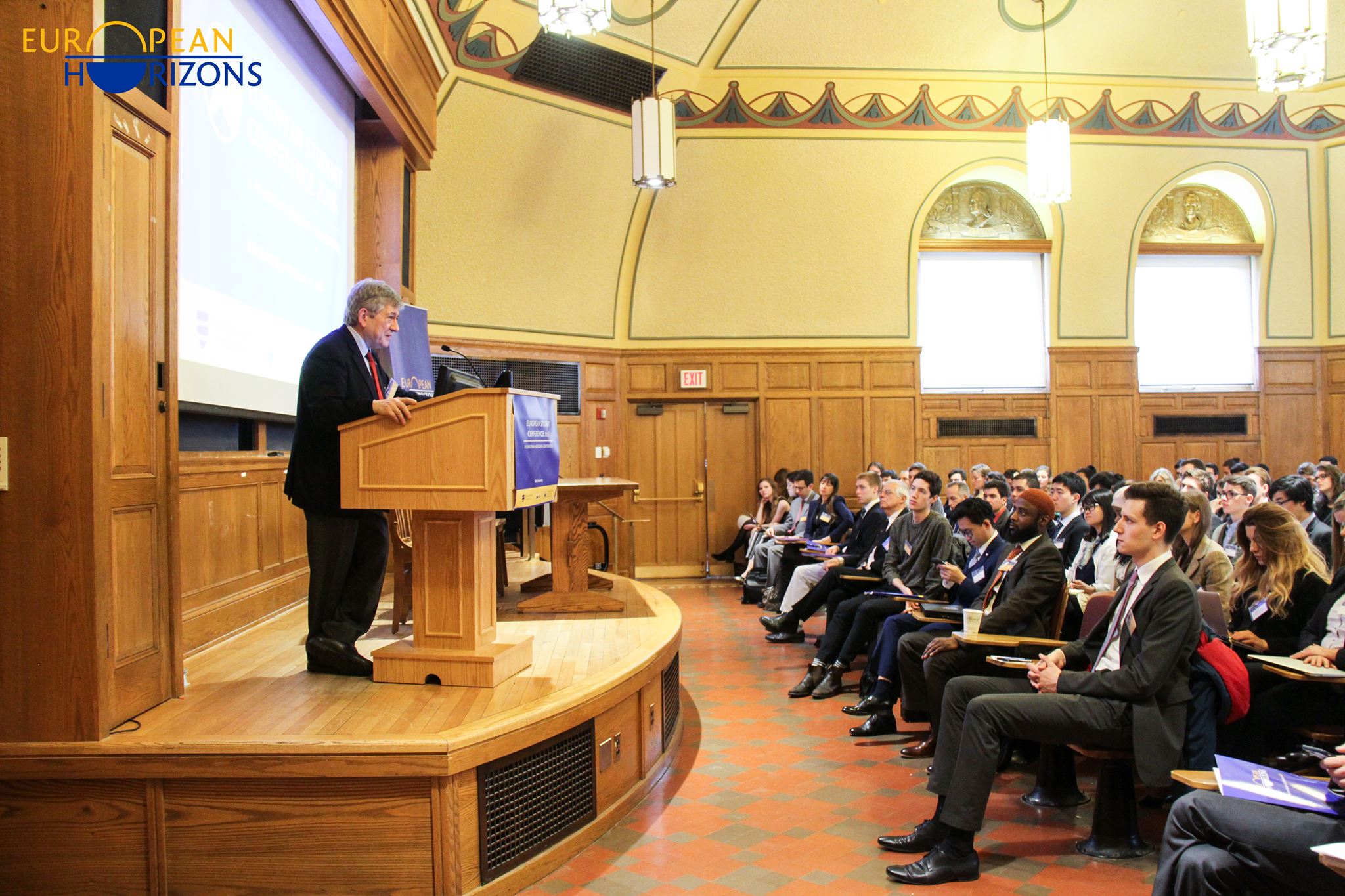Kevin Oswald is a recent alumni of the Atlantis Transatlantic Dual Degree program, completing an MAIR degree from the Maxwell School and an MPP from the Hertie School of Governance in Berlin. He also completed internships at the Embassy of the Federal Republic of Germany in Washington D.C. and Agora Energiewende in Berlin during his studies.

From March 29 to 31, 2018 I had the opportunity to participate in the European Student Conference (ESC) 2018 at Yale University in New Haven, Connecticut. ESC is a conference organized by European Horizons that brought together 100 undergraduate and graduate students from universities across the United States, Europe and Asia with distinguished academics and seasoned policy-makers in order to address some of the challenges confronting the European Union. Prior to the conference, students from different parts of the world and with different academic backgrounds, had been divided into groups, according to their knowledge and interests, in order to deal with the following challenges in six workshops related to: Energy, Technology, EU-China, Democracy, National Sovereignty and Security. Each group then made an effort to develop policy recommendations with regard to their topic and during the conference those proposals by the students were discussed with decision-makers and renowned academics. This year, ESC hosted representatives from business, politics and diplomacy, such as the former President of the European Parliament, Enrique Barón Crespo, as well as several academics from US universities.
Prior to the conference, students from different parts of the world and with different academic backgrounds, had been divided into groups, according to their knowledge and interests, in order to deal with the following challenges in six workshops related to: Energy, Technology, EU-China, Democracy, National Sovereignty and Security. Each group then made an effort to develop policy recommendations with regard to their topic and during the conference those proposals by the students were discussed with decision-makers and renowned academics. This year, ESC hosted representatives from business, politics and diplomacy, such as the former President of the European Parliament, Enrique Barón Crespo, as well as several academics from US universities.

As a student enrolled in the transatlantic ATLANTIS dual-degree Master program in International Relations and Public Policy offered by the Maxwell School and the Hertie School of Governance, I am particularly interested in foreign and security policy as well as in energy and climate policy. Therefore, I took part in the energy workshop and together with fellow students worked on the issue of the EU’s dependency on energy imports, particularly natural gas, in order to meet its demand. Given the fact that a high proportion of imports is concentrated among relatively few partners, the security of the EU’s natural gas supplies may be threatened. Our team provided a solid analysis of the status quo and presented several policy recommendations with the primary goals to diversify supply sources (new pipelines, interconnectors, LNG etc.) and to utilize soft tools, which, for instance, might require setting up an EU Energy Diplomacy Task Force to deal with delicate pipeline projects such as Nord Stream 2.
I was impressed with the expertise and dedication of our group and look forward to seeing our recommendations being published in the Review of European and Transatlantic Affairs, a journal that will be distributed to university libraries across Europe and the U.S., as well as to European decision-makers.
In sum, ESC 2018 has been a wonderful experience and I truly enjoyed the opportunity to work with fellow students that all have a passion for the EU. In addition, I hope to become part of the international ESC network that links thinkers and leaders from both sides of the Atlantic and beyond.

Kevin Oswald Interns at the German Embassy in Washington, DC
